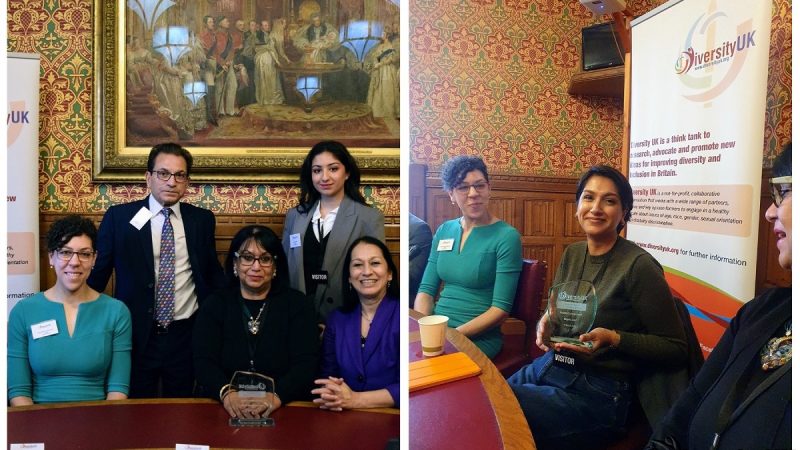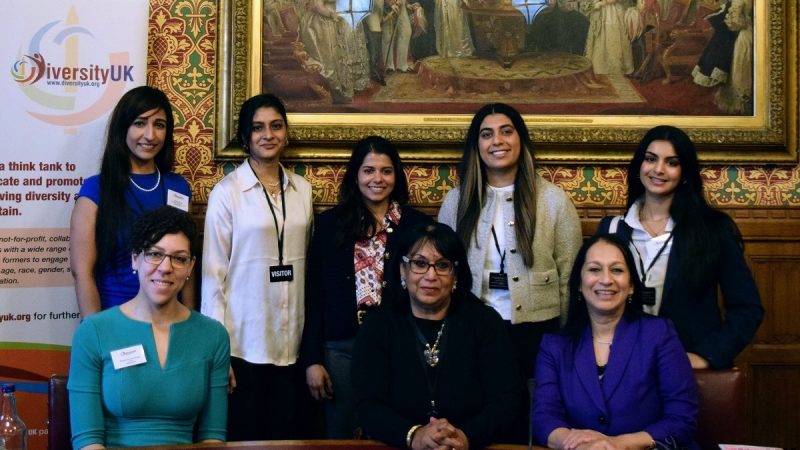EHRC calls for end to gender injustice for women

Great Britain is still many years away from achieving gender equality; according to the Equality and Human Rights Commission as it calls for action to ensure fairness for women.
The Commission’s assessment of equality and human rights in Great Britain shows that despite improving educational performance for girls and women, who now outperform boys and men at school and in degree-level qualifications, the gender pay gap remains stubborn.
The Commission wants significant action to be taken in a number of areas to even out the inequality that women face. These include the gender pay gap, pregnancy and maternity discrimination and the under-representation of women on boards.
Evidence set out by the Commission shows that women’s educational success has not translated into rewards in the workplace, with women experiencing lower pay than men and their employment continuing to be concentrated in the low wage sectors.
Even the day after graduating from University, women face the harsh reality of taking professional jobs which pay them less. Research shows that women who had just received their degree were consistently paid less than men.
Straight after University women are taking home between £15,000 - £23,999 whereas men were more likely to earn starting salaries of more than £24,000 and could even be paid more than £50,000. This gap remains persistently high, even when male and female graduates had studied the same subject, achieved an identical UCAS score or attended the same institution. It seems women studying law were the worst affected, and could anticipate starting on £20,000 a year compared to an annual salary of £28,000 for men.
While the gender pay gap appears to be narrowing, this is a result of men’s average pay falling by more than women’s and the gap still remains large.
High levels of gender segregation by occupation is further emphasised by gender segregation in apprenticeships; evidence shows women are under-represented in high-value, good-quality apprenticeships while men are under-represented in low-pay sectors, compounding the predominance of women in sectors where it is difficult to progress and earn higher wages.
Laura Carstensen, Commissioner at the Equality and Human Rights Commission says: "In today’s world women should not face these kinds of injustices, especially when data shows time after time girls and women are outperforming males at every stage in education.
“45 years after the Equal Pay Act was brought in to herald an end to gender pay inequality, our research provides clear evidence that the old economic and societal barriers are still prevalent for working women and overshadowing the prospects of our girls and young women yet to enter the workplace.
“As we enter a new year, we need to drive forward change and ensure women finally experience the fair treatment they deserve.
“We cannot continue to accept that a woman embarking upon her working life can expect to be paid less because of her sex. This unfairness won’t damage her alone but also those dependent on her and ultimately the enterprises and economy of this country which will fail to harness and reward all of our best talent."
Statistics from Is Britain Fairer?
Girls are outperforming boys in schools.
In England, girls (68.7%) were more likely than boys (52.4%) to achieve a ‘good level of development’ in the EYFSP in 2013/14. The gender gap persists through the primary school years.
In England, a similar pattern is observed in GCSE attainment, with girls (65.7%) more likely than boys (55.6%) to achieve at least five A*-Cs GCSEs or equivalent, including English and mathematics in 2012/13.
In fact, the attainment gap between girls and boys is widening – girls are pulling further ahead.
In England, girls improved at a greater rate than boys, widening the attainment gap between the two at age 16 (attainment gap in Wales and Scotland remained unchanged)
For the first time, women are outperforming men in university.
In 2008, men (22.3%) were more likely to have a degree-level qualification than women (20.5%).
By 2013, women (28.4%) had overtaken men (27.7%).
However women are less likely than men to be employed.
Employment rates for women were lower than men across England, Wales and Scotland, in both 2008 and 2013 (the gap between them narrowed but mainly due to a reduction in the male employment rate).
They are also paid less…
The average hourly pay of women (£10.33) in Great Britain in 2013 was significantly lower than that of men (£12.91)
The gender pay gap grew consistently the older women got and is over 20% for all women over 40 years old
Low paid work disproportionately affected women: 62% of workers paid below the living wage were women
The gender pay gap still exists
The decline in the average pay for men meant that the pay gap between men and women narrowed between 2008 and 2013, from 22.5% to 20%. While average pay for men dropped by roughly £1 per hour (to £12.91), women’s fell by 40 pence (to £10.33). The average hourly pay of women in Great Britain in 2013, therefore, remained significantly lower than that of men.
Studies found that women who had just received their degree were more consistently in low pay; taking home between £15,000-17,999 and £21,000-23,999, whereas men were more likely to earn salaries of £24,000 or more - and were alone in incidents of earning more than £50,000. The gap remained stubbornly high, even when graduates had studied the same subject, achieved an identical UCAS score or attended the same institution.
… are less likely to work in positions with a lot of responsibility…
Men were twice as likely to be in manager, director or senior official positions than women in 2013.
People on zero hour contracts were more likely to be women and from both young and old age groups.
Women were overrepresented in part-time work in 2013: 48% of female employment was part time – and many of those wanted full-time jobs – compared with 17% of male employment.
A voluntary target for the FTSE100 of 25% female board representation was met in 2015, but women remained under-represented in both executive and non-executive directorships, especially at executive level and outside FTSE100 companies.
…and may face unfair treatment, harassment or bullying at work relating to pregnancy and maternity.
Employers’ support for pregnant workers and those on maternity leave has not always translated into a positive experience for all women. There are issues including pregnancy discrimination and unfair dismissal during or after maternity leave (11% were either dismissed, made compulsorily redundant or treated so poorly they felt they had to leave), and there is evidence of verbal harassment, negative comments and discouragement from employers for women to attend antenatal appointments.
Women’s disadvantaged position in the labour market also inevitably has consequences for their standard of living.
Material deprivation is a measure of what households think they can afford. Women had a higher mean deprivation score than men in 2012/13.




